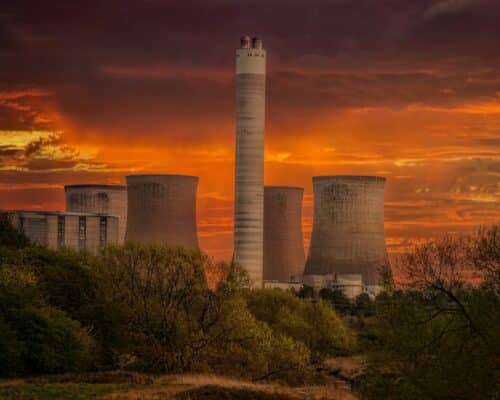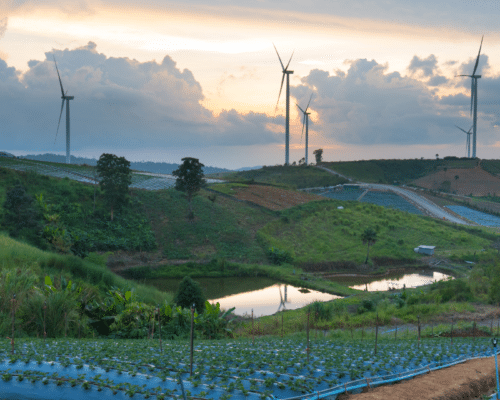The Impact on Japan as President Biden Halts LNG Exports From New Plants
19 February 2024 – by Viktor Tachev Comments (0)
The economic and ecological arguments behind Japan’s agenda to advocate for LNG investments and export its GX strategy technologies to Southeast Asia have received much criticism from think tanks, market analysts, climate activists and the rest of the G7. Now that President Biden’s administration has halted the exporting of LNG from new projects, Japan will find it difficult to defend its claims of energy security regarding the technology – claims that the country has used extensively to promote fossil fuels.
Why the Move Matters
After a period of consideration, at the end of January 2024, US President Joe Biden paused approvals for LNG exports from pending and future projects, showcasing his cabinet’s willingness to listen to environmentalists’ calls.
While 17 LNG projects theoretically fall under the decision’s scope, only four have progressed enough commercially to be affected to date. The move doesn’t relate to LNG projects currently under construction.
During the pause, the US Department of Energy will evaluate the projects’ environmental and economic impacts. Moreover, whether or not the projects will return to normal will likely depend on who wins the presidential election in November. Donald Trump’s camp has already defined President Biden’s step as “disastrous”, indicating that the former might overturn the decision if he wins.
Domestically, there is a mixed reaction against the decision. On the one hand, Reuters notes that crucial parts of the US industry, including companies from the chemicals, steel, food and agriculture industries, see the move as a way to protect fuel prices and ensure a reliable domestic supply. Environmental groups agree with this.
However, President Biden’s decision faces opposition from lawmakers, lobby groups and local and international business groups. It also remains unclear whether the pause will extend after the elections in November.
Yet, that doesn’t change the fact that the US, now the world’s biggest LNG exporter, is making a decision that will potentially have wide implications for the global market.
The Impact on Japan’s LNG Plans
Japan has been actively promoting LNG alongside fossil fuel-based technologies like hydrogen and ammonia/coal co-firing as viable options for its own decarbonisation and Southeast Asia’s. This strategy poses significant environmental and financial risks, as previous Energy Tracker Asia analysis has stated.
Academics, politicians and analysts have all questioned Japan’s plans and the feasibility, affordability and efficiency of the technologies proposed in its Green Transformation (GX) strategy. Local activists and environmental groups from target export markets have repeatedly criticised the country’s climate and ecological impacts. Even the rest of the G7 described Japan’s reluctance to give up on LNG as a “stumbling block” to the group’s climate leadership and pushed against its call for increased gas investment.
While the group has not succeeded so far in changing Japan’s course, the LNG market shifts from President Biden’s decision may see results, especially since the halted projects were intended to export LNG primarily to Europe and Asia.
No Immediate Threat For Liquefied Natural Gas Delivery, But Japan Will Likely Explore Alternatives
The affected LNG projects would have likely entered into operation around 2028. Analysts argue that the tangible impacts of the move, if maintained or extended, would be felt after five to 10 years.
According to the IEEFA, the pause won’t affect Asian consumers, as sufficient new gas capacity will go online shortly. The organisation also expects the demand in Japan to decline naturally. In fact, experts share the view that the global demand for gas could potentially peak this decade, as envisioned in the IEA’s 2023 World Energy Outlook report.
While the US leadership has assured allies that the temporary suspension wouldn’t undermine nations’ energy security, Japan’s minister of economy, trade and industry expressed concerns that it would disrupt the country’s import plans, adding that Tokyo intends to lobby against the move. The government also announced that it would start looking for new suppliers.
Bloomberg notes that several Asian buyers from Japan, China, South Korea and Bangladesh have ties to projects impacted by the halting of new export permits. The impacted Japanese energy giants include INPEX, Kyushu Electric, and JERA, Japan’s biggest LNG importer.
A JERA spokesperson said that the move, even though temporary, could cause “a concern for the world’s energy security”. However, these concerns are more relevant for Japan than the rest of the world. While the halted projects were intended to export LNG primarily to Europe and Asia, Europe is actively working to wean itself off its gas dependence and even introduced strict methane regulations.
Japan, on the other hand, is the world’s second-biggest LNG importer, relying on the fuel to meet around a third of its electricity needs. The role of the US as a supplier has been steadily growing in the past few years, marking a 34% jump in 2023 of US imports to the country.
The Environmental Impact of LNG Under Public Scrutiny
Back in 2021, the IEA stated that the world should stop investing in new fossil fuel projects immediately to achieve net zero by 2050. In a 2023 report released before the G7 meeting in Japan, the agency reaffirmed that no new gas fields or LNG infrastructure should be developed in order to limit global warming to 1.5°C. Furthermore, it concluded that even the LNG projects already under construction should remain unutilised, and existing LNG capacity would need to be decommissioned early.
Recent reports revealed that CO2 emissions at US LNG export facilities are surging. However, President Biden’s decision is a sign that the world’s leading LNG exporter is willing to listen to climate science and activists.
“This pause on new LNG approvals sees the climate crisis for what it is: the existential threat of our time,” President Biden said when announcing the move.
A group of 52 Asian civil society groups welcomed the decision, highlighting the importance of using the moment to focus on the environmental and social impact of gas.
Premature deaths, increased GHG emissions, air pollution, environmental destruction and biodiversity loss are just a part of the impacts that Asian countries have to deal with due to gas infrastructure development. The LNG expansion plans, led by Japan and its energy sector, risk locking Asia into a future where these risks could become more probable and severe.
A Cloud of Uncertainty Over Japan’s LNG Projects
Climate arguments aside, experts warn that there is no real market need for new gas infrastructure. The main reasons are that demand will peak by 2030 or earlier and that renewables already provide a cheaper and more reliable alternative in terms of energy security, with a faster time-to-market.
The Asia-Pacific accounts for half of the 416 GW in gas-fired capacity in the pipeline globally. However, regional demand for fossil gas is about to decrease by 40.4% from 2022 levels by 2050 under the IEA’s Announced Pledges Scenario. The shrinking demand, coupled with environmental concerns and power price constraints, opens up the possibility that some of the planned LNG infrastructure won’t see commercialisation or have to be closed prematurely, increasing the stranded asset risk.
According to Yuri Okubo, a senior climate engagement strategist at the Renewable Energy Institute, the decision is a clear signal to those eyeing LNG expansion across Asia and an opportunity to reassess priorities and focus on domestic clean energy generation.
Japan’s Next Move Remains Crucial
President Biden’s move provoked the fossil fuel lobby to quickly get on the defensive while showing environmentalists that even the world’s biggest LNG exporter could potentially put the climate crisis above export profits on its list of priorities.
It also serves as yet another warning for import-dependent countries that climate impacts and the price volatility of natural gas will receive much broader attention in the upcoming years, even from those that are the most interested in producing the fuel. Meanwhile, refusing to move on from the fuel could prove costly for state budgets and energy security, as European and Asian countries have learned first-hand.
For Japan, the world’s most LNG import-dependent country, it is a wake-up call that sooner or later, the country will have to wean itself off gas – if not by choice, then by necessity.
Japan’s decarbonisation technologies, part of its GX strategy, face different but significant commercialisation or economic viability challenges. Nations around the world are moving on from coal as an energy source, and the instability of LNG supply has brought its viability into question. Other aspects of the strategy, such as carbon capture and storage (CCS), hydrogen and ammonia/coal co-firing schemes, also are yet to prove themselves on a global scale.
Looking Ahead
At COP28 2023, over 300 organisations from over 40 countries urged the Biden Administration to abandon its support for LNG. Several environmental organisations, alongside a group of activists dressed as Pikachu, pressured Japan to quit its massive fossil fuel expansion plans.
While both the United States and Japan have been slow to act on the climate crisis, the former is now showing signs that it won’t brush environmentalists’ calls aside.
The latter, on the other hand, is likely to beat the brunt of its investment in fossil fuels, feeling the impacts of an unstable supply. The only way to remedy the situation would be to change tact through the embracing of renewable energy.
by Viktor Tachev
Viktor has years of experience in financial markets and energy finance, working as a marketing consultant and content creator for leading institutions, NGOs, and tech startups. He is a regular contributor to knowledge hubs and magazines, tackling the latest trends in sustainability and green energy.
Read more




